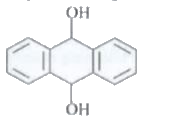If the molecules were not allowed to collide among themselves, would you expect more evaporation or less evaporation?
To solve the question of whether there would be more or less evaporation if molecules were not allowed to collide among themselves, we can break down the reasoning into clear steps:
Step 1: Understanding Evaporation
Evaporation is the process where molecules at the surface of a liquid gain enough energy to overcome intermolecular forces and transition into the gas phase. This process is influenced by the kinetic energy of the molecules and the conditions of the surrounding environment.
Hint: Recall that evaporation depends on the kinetic energy of molecules and their interactions.
Step 2: Considering Molecular Collisions
In a typical scenario, gas molecules collide with each other and with the walls of the container. These collisions play a crucial role in transferring energy among molecules and maintaining pressure.
Hint: Think about how collisions affect energy distribution among molecules.
Step 3: Analyzing the Effect of No Collisions
If molecules are not allowed to collide, the mean free path (the average distance traveled by a molecule between collisions) would tend to infinity. This means that molecules would travel without interacting with each other, leading to an increase in their average kinetic energy.
Hint: Recall that mean free path is related to how often molecules collide. What happens if there are no collisions?
Step 4: Impact on Kinetic Energy and Temperature
As the mean free path increases, the average kinetic energy of the molecules also increases significantly. Higher kinetic energy translates to higher temperatures within the container. Since evaporation is temperature-dependent, an increase in temperature would lead to more molecules having enough energy to escape into the gas phase.
Hint: Consider how temperature affects the rate of evaporation.
Step 5: Pressure Considerations
In the absence of collisions, there would be no pressure exerted by the gas on the walls of the container. Pressure is generated by the collisions of gas molecules with the walls. Without pressure, the environment can be considered a vacuum, which lowers the boiling point of the liquid.
Hint: Think about how pressure relates to the boiling point and evaporation.
Step 6: Conclusion
Given that the average kinetic energy increases and the pressure is effectively zero (creating a vacuum), we conclude that there would be more evaporation in this scenario. The lack of molecular collisions facilitates a higher rate of evaporation due to increased kinetic energy and lower boiling point conditions.
Final Answer: There would be more evaporation if the molecules were not allowed to collide among themselves.
Evaporation is the process where molecules at the surface of a liquid gain enough energy to overcome intermolecular forces and transition into the gas phase. This process is influenced by the kinetic energy of the molecules and the conditions of the surrounding environment.
In a typical scenario, gas molecules collide with each other and with the walls of the container. These collisions play a crucial role in transferring energy among molecules and maintaining pressure.
If molecules are not allowed to collide, the mean free path (the average distance traveled by a molecule between collisions) would tend to infinity. This means that molecules would travel without interacting with each other, leading to an increase in their average kinetic energy.
As the mean free path increases, the average kinetic energy of the molecules also increases significantly. Higher kinetic energy translates to higher temperatures within the container. Since evaporation is temperature-dependent, an increase in temperature would lead to more molecules having enough energy to escape into the gas phase.
In the absence of collisions, there would be no pressure exerted by the gas on the walls of the container. Pressure is generated by the collisions of gas molecules with the walls. Without pressure, the environment can be considered a vacuum, which lowers the boiling point of the liquid.
Given that the average kinetic energy increases and the pressure is effectively zero (creating a vacuum), we conclude that there would be more evaporation in this scenario. The lack of molecular collisions facilitates a higher rate of evaporation due to increased kinetic energy and lower boiling point conditions.
Topper's Solved these Questions
Similar Questions
Knowledge Check
Which of the following carbonates would you expect to rearrange?
A B
B C
C D
D
Which one of the following dienes would you expect to be the most stable ?
A B
B C
C D
D
Which of the following alcohols would you expect to form carbocation most readily in H2SO4 ?
A B
B C
C D
D
Which of the following compounds would you expect to have a dipole moment ?
View SolutionAssuming that half the population are consumers of chocolate, so that the chance of an individual being a consumer is 1/2, and assuming that 100 investigators each take ten individuals to see whether they are consumers, how many investigators would you expect to report that 3 people or less were consumers?
View SolutionIn which of the following molecules would you expect the nitrogen-to-nitrogen bond to be the shortest?
View SolutionIn which mode of inheritance do you expect more maternal influence among the offspring?
View SolutionWhich one of the following acids would you expect to be the strongest?
View Solution
